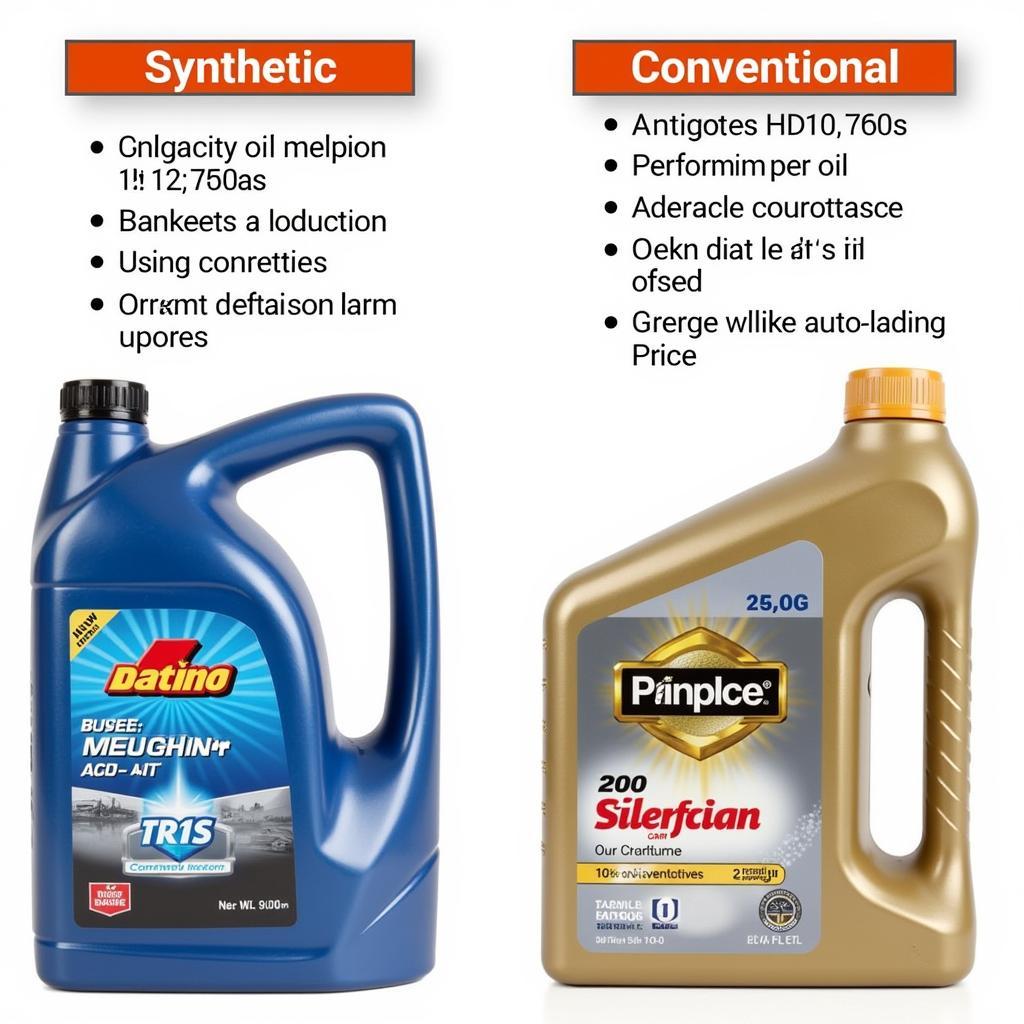Choosing the recommended car oil can feel overwhelming with so many options on the market. This guide will simplify the process, providing you with the necessary information to make an informed decision, ensuring your engine runs smoothly and efficiently for years to come. We’ll cover everything from understanding viscosity grades to deciphering manufacturer recommendations.
Understanding Your Car’s Needs
Before diving into the specifics of recommended car oil, it’s crucial to understand your car’s individual needs. Factors such as your car’s make and model, age, driving conditions, and climate all play a role in determining the best oil for your vehicle. Do you primarily drive short distances in the city, or do you frequently embark on long highway journeys? Are you navigating scorching desert heat or braving icy winter roads? These factors influence your engine’s oil requirements.
Decoding the Owner’s Manual
Your owner’s manual is the first place to look for recommended car oil. It specifies the manufacturer’s recommended viscosity grade, the API (American Petroleum Institute) performance standard, and sometimes even specific oil brands. Ignoring these recommendations could void your warranty and potentially harm your engine.
What Does Viscosity Mean?
Viscosity refers to an oil’s resistance to flow. A lower viscosity oil, like 0W-20, flows more easily than a higher viscosity oil, like 10W-40. Your engine requires different viscosities at different temperatures. A multi-grade oil, indicated by two numbers separated by a “W” (for winter), is designed to perform across a range of temperatures. For example, 5W-30 oil will flow like a 5-weight oil in cold temperatures and a 30-weight oil in hot temperatures.
Choosing the Right Viscosity
Choosing the correct viscosity is essential for optimal engine performance and protection. Using an oil that’s too thick can hinder fuel economy and prevent proper lubrication during cold starts. Using an oil that’s too thin can lead to insufficient lubrication at high temperatures, potentially causing engine damage. Always refer to your owner’s manual for the recommended viscosity grade. What’s the average life of a car in the USA? Find out more here: average life of a car in usa.
Synthetic vs. Conventional Oil
Another factor to consider when choosing recommended car oil is the type of oil base: synthetic or conventional. Synthetic oils are engineered to provide superior performance and protection compared to conventional oils. They offer improved resistance to breakdown, better flow in cold temperatures, and enhanced high-temperature stability. While synthetic oils are generally more expensive, they can extend the life of your engine and improve fuel efficiency. Looking for a brand new car feeling? Check this out: brand new car.
Making the Right Choice for Your Engine
Determining whether synthetic or conventional oil is right for your car depends on several factors, including your driving habits, climate, and budget. If you frequently drive in extreme conditions or prioritize maximum engine protection, synthetic oil is often the better choice. For less demanding driving conditions, conventional oil may suffice. Looking for fast cheap cars? Look no further: fast cheap cars.
 Comparing Synthetic and Conventional Motor Oil
Comparing Synthetic and Conventional Motor Oil
Conclusion: Keeping Your Engine Running Smoothly
Choosing the recommended car oil is crucial for maintaining your engine’s health and longevity. By understanding your car’s specific needs, decoding your owner’s manual, and considering the various factors discussed in this guide, you can confidently select the right oil for your vehicle, ensuring optimal performance and protection for years to come. Remember to always consult your owner’s manual for the manufacturer’s recommendations. Need specific RC car shocks? Check out: rc car shocks 85 mil. For a step-by-step skincare routine, see this: step by step skin care routine.
FAQ
- How often should I change my car oil?
- What are the signs of low engine oil?
- Can I mix different types of car oil?
- What is the difference between API and ILSAC oil standards?
- How do I check my car’s oil level?
- What happens if I use the wrong car oil?
- Is high-mileage oil necessary for older cars?
Common Scenarios:
- Scenario 1: Your car is brand new. Follow the manufacturer’s recommendations in the owner’s manual precisely.
- Scenario 2: You live in a cold climate. Choose a lower viscosity oil that meets your manufacturer’s recommendations.
- Scenario 3: You frequently tow heavy loads. Consider using a higher viscosity oil or a synthetic oil for added protection.
Related Articles and Questions:
- What are the best oil filters for my car?
- How to change your car oil yourself
- Understanding oil additives and their benefits
For further assistance, contact us via WhatsApp: +1(641)206-8880, Email: [email protected], or visit us at 276 Reock St, City of Orange, NJ 07050, United States. Our customer service team is available 24/7.


